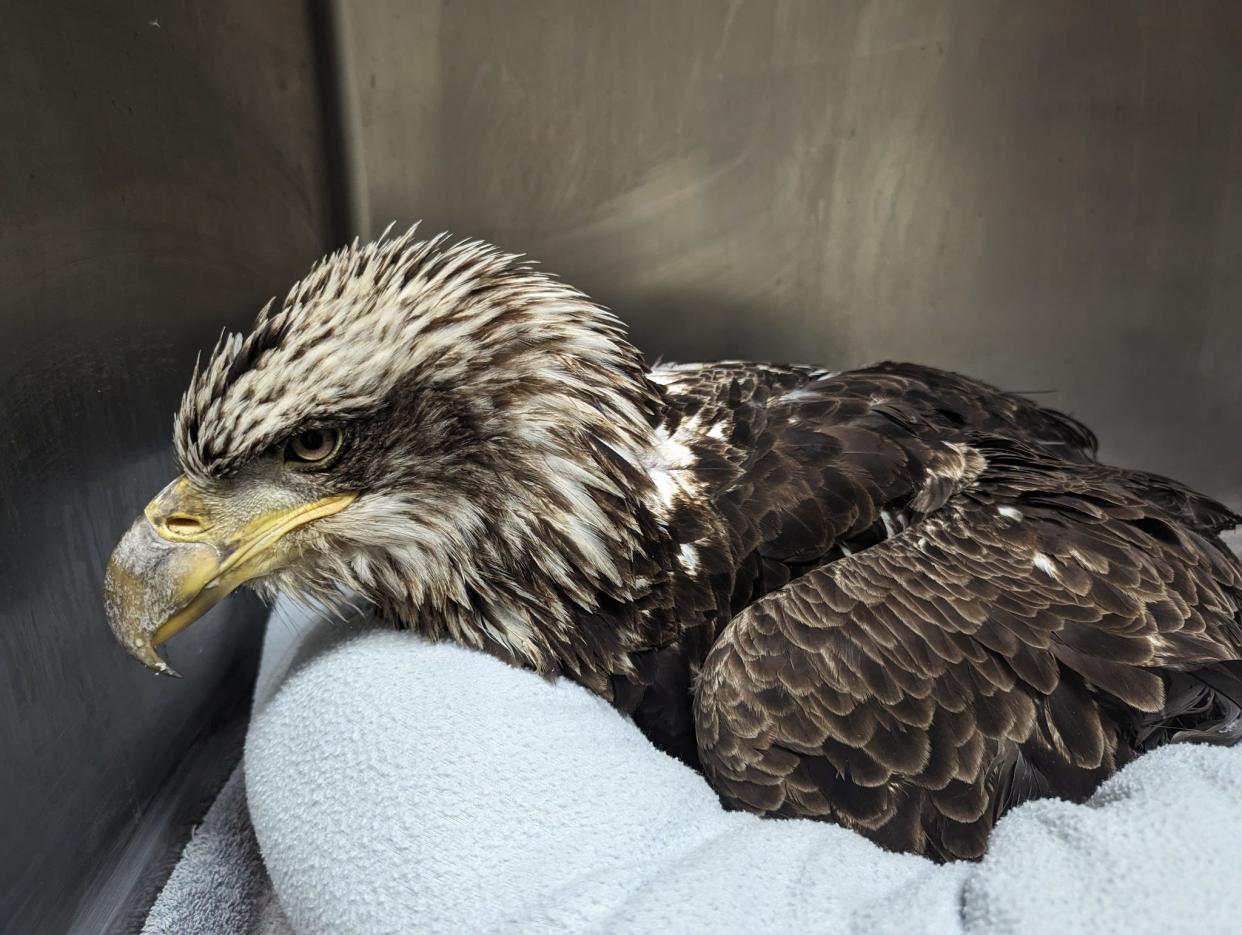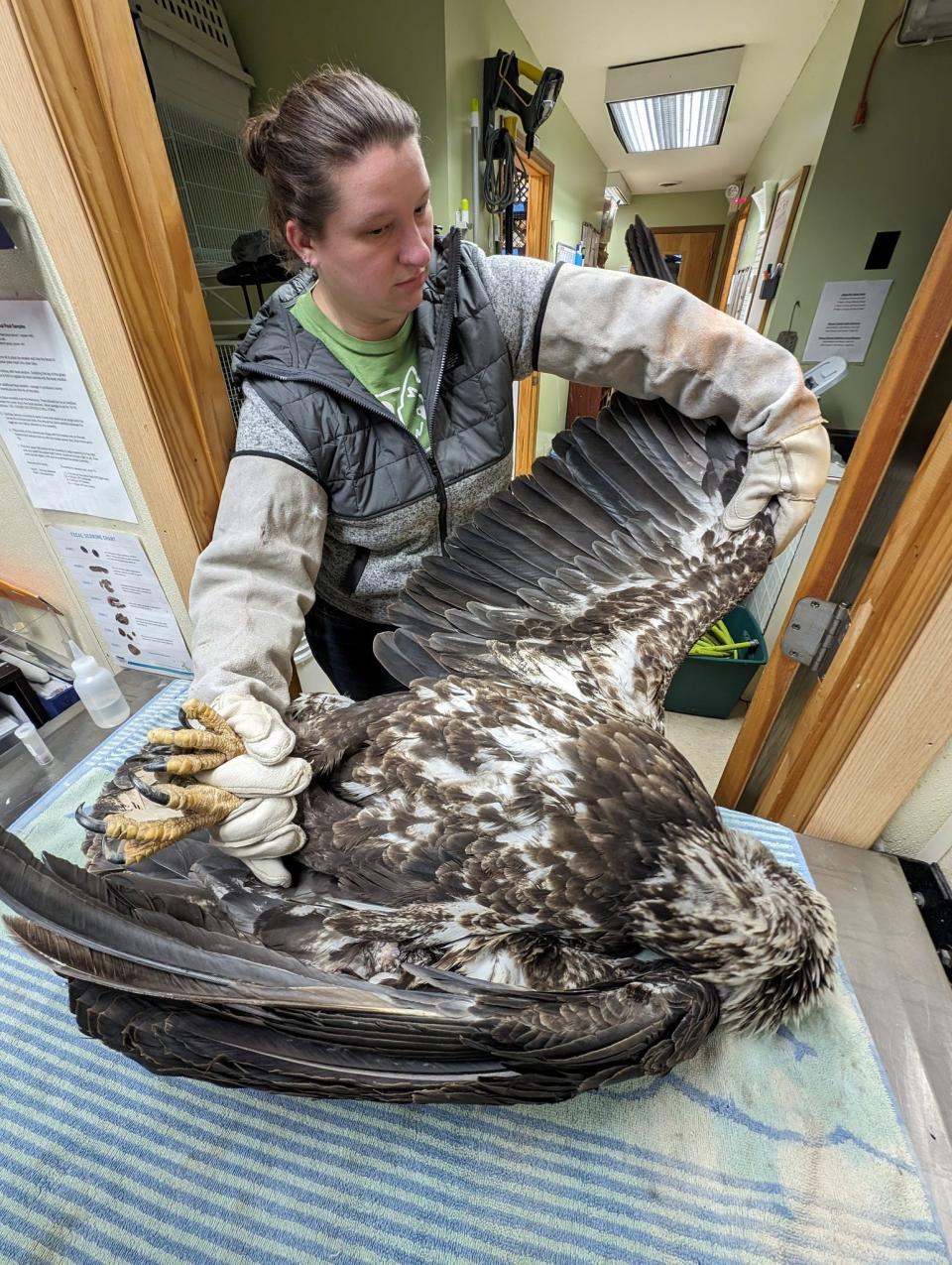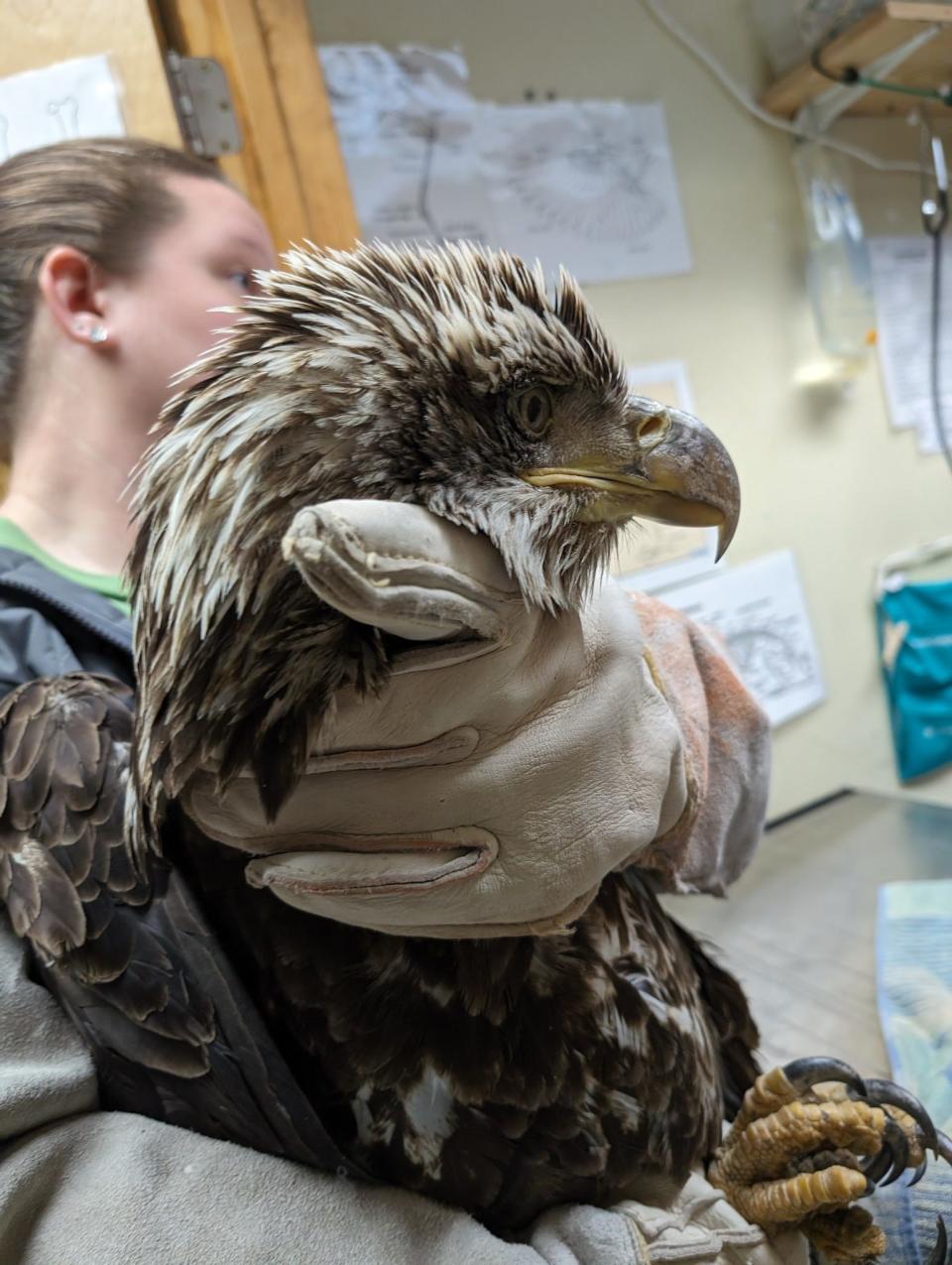Potato Creek eagle dies from lead poisoning. Wildlife rehabbers caution against lead gear.

A sub-adult bald eagle from Potato Creek State Park died this week as wildlife rehabilitation specialists tried to save it from lead poisoning.
In its Facebook post, rehabbers at Humane Indiana Wildlife in Valparaiso pointed out how such poisonings in eagles often happen because of lead-based hunting and fishing gear that accidentally breaks off and remains in the field.
Humane Indiana posted that the ailing bird had been found Monday by a local bird watcher and photographer at the park in North Liberty, which has had nesting bald eagles since at least 2012. He alerted park officials, and a volunteer from a South Bend animal rescue organization called Rescue Release Repeat took the eagle to Humane Indiana.
First hatchings reported in 2015: Eagles hatch at Potato Creek State Park in North Liberty
Rehab specialists tested the eagle’s blood and found that the bird’s lead level exceeded the facility’s testing capacity of 60 micrograms per deciliter, which Humane Indiana said was “very likely going to be lethal.” The facility’s staff stabilized the eagle with fluids, a “critical care food alternative” and chelation therapy to start removing the lead. But Humane Indiana said the eagle died overnight, though it wasn’t surprising.

The prognosis isn’t good for most eagles with acute poisoning, the nonprofit said. If they survive, it said, they often can face “thousands of dollars” in treatment but still be left with lifelong impairments. Humans likewise can suffer a range of medical issues from lead poisoning.
A lead fragment the size of a grain of rice can be lethal to a mature bald eagle, it said. Even small exposures to lead can lead to symptoms such as brain swelling, respiratory distress, muscle weakness, dehydration, starvation, kidney and liver damage, and seizures. Neurological damage can include loss of vision, coordination and nerve function, making the bird seem drunk or unable to stand.

Humane Indiana used the post to advocate something that conservation-minded anglers and hunters have also urged: using lead-free fishing tackle and hunting ammunition. Lead-based remnants can be left in the field accidentally when a fishing line snaps or when gut piles are left behind.
Outdoor Adventures: After 80 years of bird watching, local Audubon seeks more inclusive, youthful name
South Bend Tribune reporter Joseph Dits can be reached at 574-235-6158 or jdits@sbtinfo.com. Find his weekly Outdoor Adventures column on Facebook at SBTOutdoorAdventures.
This article originally appeared on South Bend Tribune: Potato Creek State Park bald eagle dies from lead poisoning

